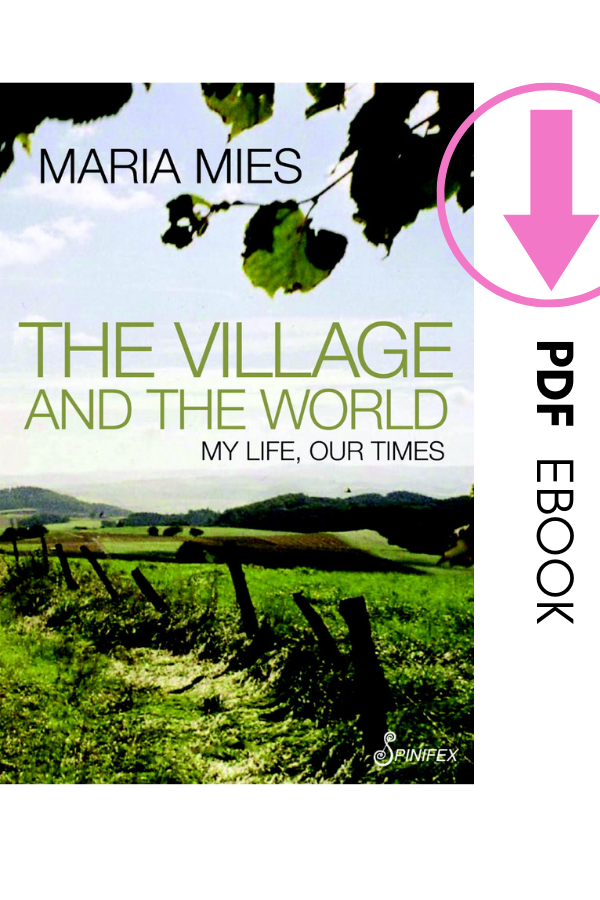 Image 1 of 1
Image 1 of 1

The Village and The World: My Life, Our Times ebook (PDF)
In this autobiography, Maria Mies packs in seventy-seven years of life: from the small German village of her childhood, to the world of the Indian subcontinent. Sociologist and Women’s Studies researcher, scholar, ecofeminist, and international activist, Maria Mies is one of the world’s original thinkers.
Maria Mies’ achievements include developing groundbreaking praxis and theory around the concept of “housewifisation”, the violence of colonisation and profound writings about ecofeminism. She fights the Multilateral Agreement of Investment, she fights the General Agreement on Trade in Services, she fights against the patenting of life and tackles reproductive and genetic engineering as well as food security, but she never gives up hope that there is an alternative to present day injustice and exploitation; that “the good life” is possible.
And Maria Mies never forgets her origins:
Despite all my travels around the world, I have never forgotten where I came from: from a peasant family in a small village. This not only helped me keep my feet on the ground, but also protected me from excessive romanticism and quixotic idealism. I know that the food doesn’t come from the supermarket but from the soil.
2010 | 380 pages
In this autobiography, Maria Mies packs in seventy-seven years of life: from the small German village of her childhood, to the world of the Indian subcontinent. Sociologist and Women’s Studies researcher, scholar, ecofeminist, and international activist, Maria Mies is one of the world’s original thinkers.
Maria Mies’ achievements include developing groundbreaking praxis and theory around the concept of “housewifisation”, the violence of colonisation and profound writings about ecofeminism. She fights the Multilateral Agreement of Investment, she fights the General Agreement on Trade in Services, she fights against the patenting of life and tackles reproductive and genetic engineering as well as food security, but she never gives up hope that there is an alternative to present day injustice and exploitation; that “the good life” is possible.
And Maria Mies never forgets her origins:
Despite all my travels around the world, I have never forgotten where I came from: from a peasant family in a small village. This not only helped me keep my feet on the ground, but also protected me from excessive romanticism and quixotic idealism. I know that the food doesn’t come from the supermarket but from the soil.
2010 | 380 pages
